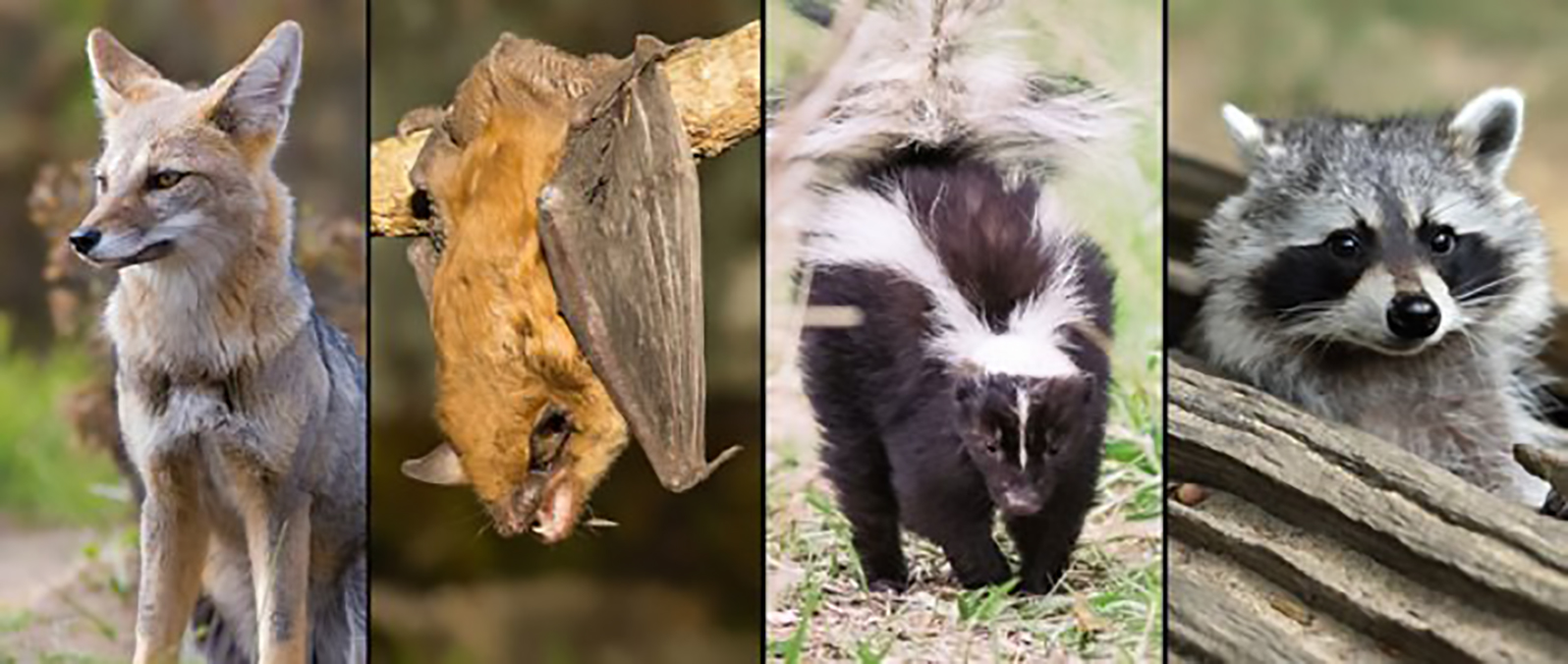As we enter the warm weather seasons, San Juan Basin Public Health (SJBPH) would like to remind residents to be rabies aware. SJBPH urges residents spending time outdoors to avoid contact with wild animals, especially those acting unusually.
Please also take precautions for pets and livestock, and be sure their vaccinations are current. Pets and other domestic animals can be infected when they are bitten by rabid wild animals.
When “spillover” rabies occurs from wild animals to domestic animals, the risk to humans is increased.
“By knowing what to watch for and taking the proper precautions, rabies infections are very preventable. Be rabies aware when you are camping, hiking, or just working in the yard this year and we can prevent potentially fatal rabies infections in our community,” said Liane Jollon, Executive Director, SJBPH.
Humans get rabies from the bite of a rabies-infected animal. Any wild mammal, such as raccoon, skunk, fox, coyote, or bat can have rabies and transmit it to humans through a bite.
Rabies is almost always fatal in humans once symptoms appear. People who have been bitten or scratched by an unfamiliar animal should contact their health care provider immediately to reduce the risk of rabies. To report an encounter with a suspect animal, please call San Juan Basin Public Health at 970-247-5702.
Because bats are the most common carriers of rabies in Colorado, SJBPH is reminding the public about strict guidance for post-exposure treatment when a potential bat contact occurs. Bats can bite people while they sleep and individuals may not realize that they have been bitten. If a bat has been present in a room with children or people who are sleeping, it is important that the bat is safely trapped and tested for rabies. If a bat cannot be tested or there are multiple bats in the home, post-exposure treatment is recommended. Please contact SJBPH for guidance on safe capture/testing of bats, and follow-up.
General tips to protect yourself from rabies:
- Never touch or feed wild or stray animals. Don’t leave pet food outdoors. If you see a sick or orphaned animal, do not touch it; instead contact Animal Control or Colorado Parks and Wildlife.
- Vaccinate your pets. Use a licensed veterinarian, and make sure you keep up with your pets’ booster shots.
- Leash your dog. Protect dogs and wildlife by keeping your pet on a leash while walking or hiking.
- Keep cats and other pets inside at night. Keep dogs within your sight (in a fenced yard or on leash) during the day while outside.
- Call your veterinarian promptly if you believe your pet has been exposed to a wild animal.
- Vaccinate pastured animals annually. Have a licensed veterinarian administer an approved large-animal rabies vaccine.
- Bat-proof your home. Information is available at www.cdc.gov/rabies/bats/management.
To recognize sick wildlife:
- Many healthy wild animals are normally afraid of humans; sick animals often do not run away when spotted by people.
- Wildlife with rabies may act aggressively or will violently approach people or pets.
- Rabid wildlife might have trouble walking, flying, eating, or drinking.
To report an encounter with a suspect animal, please call San Juan Basin Public Health at 970- 247-5702.

